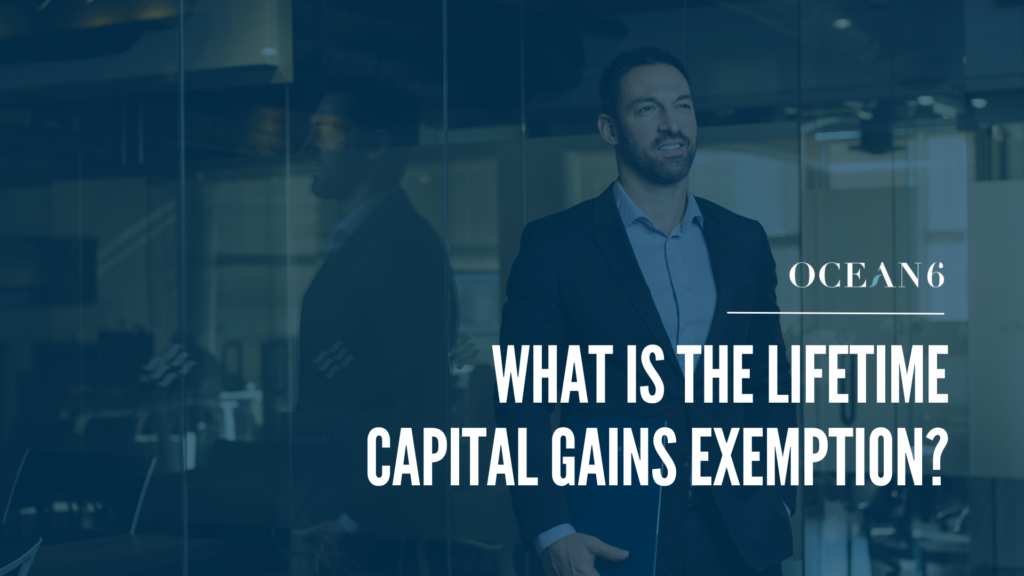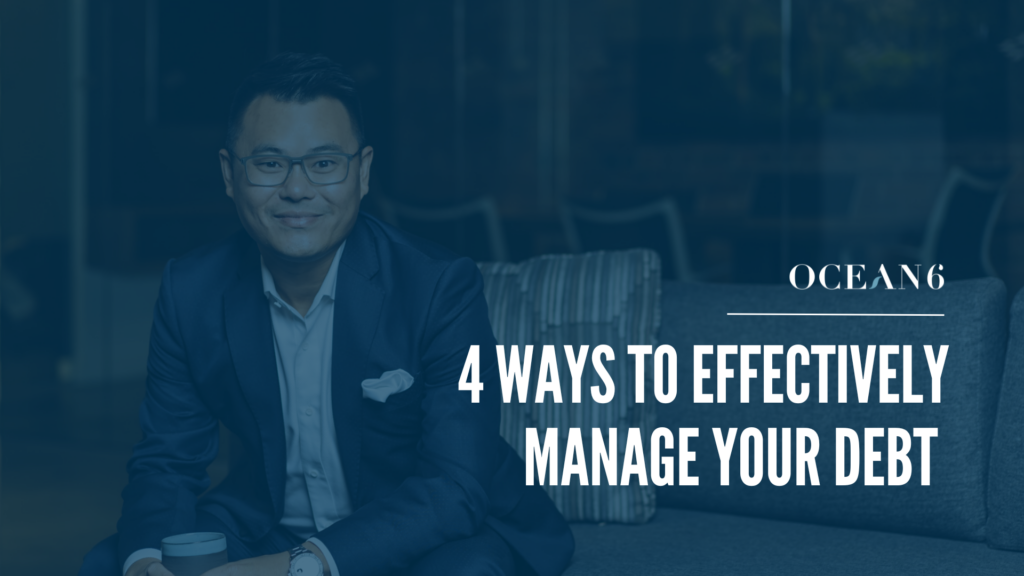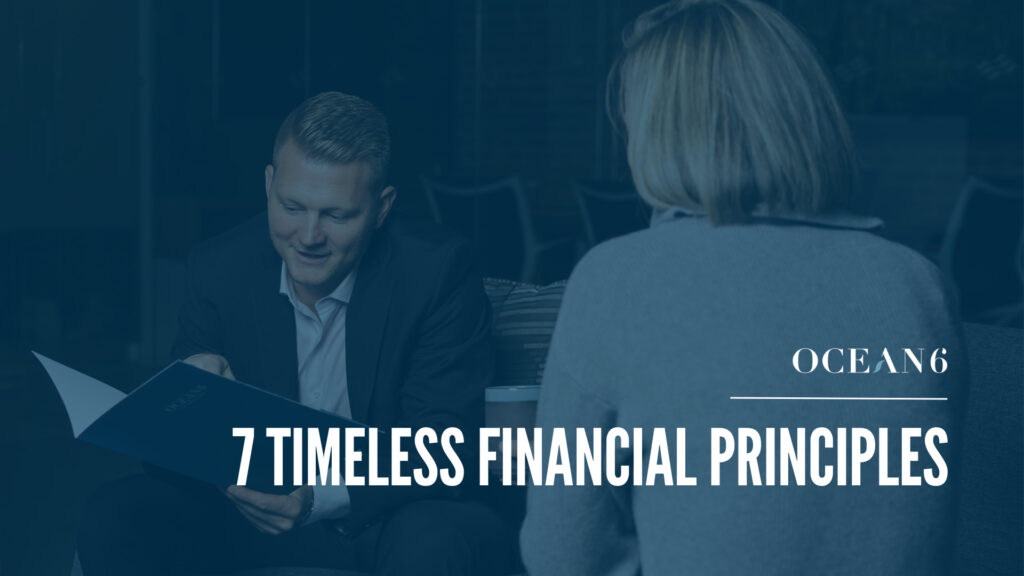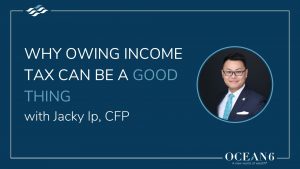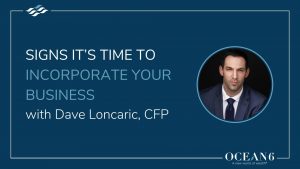Debt management is on the minds of Canadian business owners more than ever.
Unfortunately, most of us don’t achieve our full financial potential because we’re not allocating money to the right places. We’re missing a full financial plan, including debt management, that’s focused on delivering our most ambitious goals. Today, we’re going to provide you with plenty of information to help you get on track when it comes to effectively managing debt.
Debt Management Information
If you’re a business owner trying to pay down debts or you have personal debts you need to get under control, this is one post that can’t be missed. In addition to telling you more about debt restructuring options, we’ll also cover important topics like why sticking to dividends is beneficial for business owners trying to qualify for a mortgage.
What is Debt Restructuring?
As we explain in this post, “How should an entrepreneur structure their debt in the most effective way and for the lowest cost? A lot of entrepreneurs focus on getting the lowest interest rate on their loans. But the lowest interest rate doesn’t always result in the lowest cost of having that debt over the long term.
If you look at a fixed-rate mortgage, for example, you’re paying a higher rate when your debt is at the highest amount. With a variable-rate mortgage, on the other hand, you’re often paying a significantly lower rate when your mortgage is at a higher amount. Similarly, a line of credit gives you significantly more flexibility to pay down debt and allocate it over the long-term at a much lower cost of the overall borrowing.”
We understand the right way to structure debt is different for many people. It’s important to consider your personal goals and circumstances to come up with the best solution.
Structuring Debt
For example, you might be wondering whether to pay down existing debt, such as a mortgage, or use that money to invest in the market.
We answer that question here, explaining:
“If it’s a high-interest rate debt like a credit card, then try to get rid of it. But in a lot of cases paying down debt is not necessarily the immediate best option.
If you can use the money to invest in your business or take advantage of the current market you could come out on top. It comes down to your long-term goals and what life you want to live. Once you’ve aligned your goals with your cash flow, you are better placed to make these decisions.
A lot depends on your personality and ability to be able to handle risk; you must be comfortable with fluctuations along the way. In the short term, you may lose money, but if you allocate it properly over a five to seven-year period, you should see growth. This doesn’t mean you have to invest for seven years; if the market grows you can take your money, you just need to be comfortable with a long-term timeframe.”
Borrowing Money to Invest
“If you do decide to borrow money to invest, make sure you can service the debt even if your investments go down. The market has proved us wrong many times in the last few months, we thought it couldn’t go lower, and it did. We thought it couldn’t recover fast, and it did. We don’t know where the market is going to go. Always take a long-term approach when borrowing to invest.
Real estate also is a leveraged investment strategy. Just because you don’t see the statements every month, you’re taking on debt to buy the property and banking on the value going up. You can’t push a button to get out of real estate, so it’s a significantly different relationship and comfort rate, but you’re still taking on risk.”
Should You Be Paying Off Your Debt?
Of course, when it comes to debt management, many of our clients want to know if they should be paying off their debts in the first place. And if so, which ones to prioritize and how much to pay. Specifically, many business owners are left asking themselves if they should be paying off debt or investing. Both are important goals. But there are situations when one option makes more sense than the other.
Get Clear on Your Goals
In When To Pay Off Debt And When To Invest we explain:
“When you’re considering whether to pay off debt or to invest, you first need to be clear on your goals. Paying off debt means reduced stress, lower risk, and greater ability to handle uncertainties in life. On the other hand, investing means building wealth that will protect you and your loved ones. It provides passive income and gives room for a comfortable retirement. Being clear on your goals and the inherent risks of each option helps to put things into perspective while considering both paths.
One exercise that can be helpful is to compare the rate of after-tax interest that you’re paying on your debt with the after-tax rate of return you expect to earn on your investments.
For example, if you’re considering paying off a mortgage on your principal residence with an interest rate of 2.5% versus investing in your corporate account. It rarely makes sense to take money out of your corporate account and pay an extra layer of personal tax to pay off your mortgage. It is almost always more beneficial if you keep money inside your corporate account and invest tax efficiently.
As a general rule, if you can earn a higher after-tax rate of return on your investments than the after-tax interest in your debt, you should invest. On the other hand, if you are carrying high-interest debt such as credit cards, it might make more sense to pay off your balance, or better yet, restructure your debt to utilize a line of credit.”
How Should Business Owners Be Paying Down Debts?
Now, if you do decide to focus more on paying down debts than investing, what’s the best debt management strategy to get you there? When making this decision, it’s important to remember that not all debt is created equally. Some debts are looked on more favorably than others which means you need to consider the return you get from that debt.
In this post, we use investing in your business as an example: “This has the potential to pay off. Whereas borrowing money to pay for a vacation? Not as likely to offer you a financial return.”
Capital Dividend Accounts
As for the best way to pay down your debt if you do take that path? We encourage you to, “Consider something called the Capital Dividend Account. It’s a notional account that allows you to pull money out of your corporation tax-free. Simply put, if you can take money out of your corporation without paying tax on it, then do it! Pay down your mortgage. Otherwise, think about the 40-50% gift you are giving to the CRA whenever you pay your extra mortgage down.
Consider the tax implications as a business owner whenever you do this. And, look for other means within your corporation to find tax-free dollars for paying down your debts.
Grow your assets inside your corporation instead, and remember: it is the net assets that matter. Factor all of your assets against all of your liabilities when you’re thinking about your overall wealth.”
Using Your Debt to Your Advantage
Remember what we said about using dividends rather than a salary to pay yourself as a business owner?
It’s a common misconception that you need to pay yourself a higher income to qualify for a mortgage. But when you own your own company and you’re paying yourself, that just isn’t true.
Salaries vs. dividends
As we cover in this post,
“One of the benefits of owning a corporation is the ability to pay yourself either with:
- dividends
- a salary; or
- a combination of the two
Paying yourself a salary is an expense for your corporation. This expense has the benefit of reducing your corporation’s taxable income, and in turn, reducing the amount of corporate taxes you have to pay.
On the other hand, shareholders can be paid dividends from the corporation’s after-tax earnings. While this doesn’t reduce the taxable income, it has benefits for the shareholder when it comes to tax time thanks to dividend tax credits.
To sum it up, paying yourself a salary from your corporation helps you save on corporate taxes but you end up paying higher personal taxes. Dividends mean lower personal taxes and a corporate tax break.
Of course, the right choice is different for every business owner. But if you intend to qualify for a mortgage, there are plenty of good reasons to explore paying yourself with a dividend rather than wages.”
Common Questions About Debt Management
In this post, we also answer several common questions about debt management with important answers you won’t want to miss.
What happens when we make minimum payments or interest-only payments? How do we get out of debt?
“If you’re taking on high-interest rate debt such as credit cards and not even covering the interest, your debt is only going to grow. Try to consolidate your debts together in a low-interest loan like a Line of Credit.”
What happens to my debt if I die?
“When the executor settles your estate; they’ll do an inventory of all your assets and all your debts. For the estate to settle and to pass on money to your beneficiaries, all debts need to be paid. If there are debts outstanding assets will be liquidated to pay for any existing debt.
If there are more debts than assets, this will not be passed on, as long as the debts have not been co-signed. But if the debt is joint or co-signed, then the co-signer will take responsibility for that debt once you have passed.
Usually, banks will do their due diligence. They won’t let you take on debt unless there are assets to back it up.”
Should I get a Line of Credit secured against my home?
“We always recommend using a Line of credit to consolidate your debts at a lower interest rate.
The benefit of a Line of Credit is you have the option to only pay interest on the money you use. It’s also more flexible, so you can decide how much you pay down rather than being locked into fixed payments with a traditional mortgage. A hybrid is always the best option.
Access to money is important right now and a much better option than having to refinance, break your mortgage or take money out of your corporation. Take advantage of your equity.”
Should I take a fixed or variable rate mortgage?
“Work out the total cost of all payments over the term of your mortgage.
Most mortgage brokers recommend a variable rate. Typically, when you take out a variable rate mortgage it is posted much lower than a fixed rate. To make the fixed rate the more cost-effective choice over a five-year period, the Bank of Canada would need to increase prime 9 times or more by their usual increase of 0.25%.
People fear that variable-rate mortgages could see interests go up more than this, to 15% and above. But it’s an almost impossible scenario in a five-year timeframe.
What a lot of people don’t know is over 60% of mortgages are broken before the five-year term. And the penalties for withdrawing from a fixed-rate mortgage are about nine times higher than that of a variable mortgage.”
As always, Ocean 6 is here to help you explore your debt management options in the context of your wider financial picture. We’re eager to bring you towards a brighter financial future, so let’s get started. Book a call with our team.

